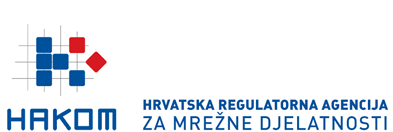ZAGREB, May 8, 2015 – The second meeting between the European Commission and the representatives of BEREC (Body of European Regulators for Electronic Communications) is taking place in Brussels today, where the discussion on the future amendments within the European regulatory framework on electronic communications is in focus, specially referring to the area of user protection, universal service and management in the electronic communications sector in the EU.
The most important topic of the first part of the meeting is an overview of the regulatory tools that are currently available to the regulators to protect users, meaning, whether the previously mentioned tools are appropriate for the purpose and to what extent. Therefore, it must be considered whether to amend the existing regulatory framework and to implement new tools that will be available to the national regulators in order to protect market competition and to protect users in a fast growing market. The possible changes within the framework of the Universal Service regarding the Digital Agenda development objectives are being considered as well. In the second part the meeting, the future role of the regulator in the fast-growing digital market was discussed as well as their positioning within the European regulatory process. Furthermore, BEREC and its internal work mechanisms were discussed too.
The European Commission is carrying out an audit procedure of the regulatory framework in the electronic communications sector within the broader strategy entitled "Digital Single Market" (DSM) announced by the European Commission on 6 May 2015,which includes the audio visual services, electronic communications services, copyrights and electronic commerce . Thereby, the Commission wants to position BEREC in this process taking into account the attitudes and opinions of BEREC. The cooperation is taking place in the so-called "What if ..." format of meetings meaning the meetings between BEREC and the EC representatives where certain aspects of the regulatory framework are being discussed , with an emphasis on its application in the future., HAKOM was represented by Domagoj Jurjevic, deputy President of the Council of HAKOM at the meeting.
# # #
For additional information please contact:
Croatian Regulatory Authority for Network Industries (HAKOM)
Roberta Frangeša Mihanovića 9
10110 Zagreb, Croatia
Tel. + 385 (0) 1 700 70 07
Fax + 385 (0)1 700 70 70
Media inquiries can be submitted online using HAKOM’s official website:
Registration required.
ABOUT HAKOM: HAKOM (www.hakom.hr) - Croatian Regulatory Authority for Network Industries – ensures preconditions for a fair market competition, stable growth and environment for innovations in the electronic communications and postal services market. HAKOM protects users’ interests and the possibility of choice among various communications and postal services at affordable prices, defines sustainable competitive conditions for operators and service providers under fair conditions for return on investment, and provides support to economic growth, public services and the quality of life in the Republic of Croatia by using modern technologies. HAKOM’ strategic goals are: to promote regulation of the electronic communications and postal services market, to support growth of investments and innovations in the electronic communications and postal services market, to provide efficient use of limited resources, to accelerate the growth of broadband products and services, to provide affordable offers of communications and postal services, to provide protection and informing of users, to build an efficient and comprehensive information system, to define and implement efficient processes, and to acquire multi-disciplinary competencies in market regulation.

